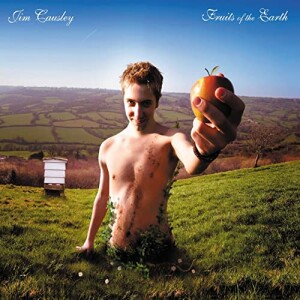 Jim Causley is a relatively new name on the UK folk scene. He is a young man in his twenties who shows a lot of promise, singing fine old English traditional folk songs. At least, that is what he presents on this his debut album. The cover has an amusing photo of Jim bare-chested and apparently sprouting forth from a grassy field, cheekily offering you an apple. Indeed, as a fruit of the earth and being a country boy coming from Devon/Cornwall in the southwest of England, Jim is content in carrying on the tradition of singing songs that are largely indicative of this part of the world – and why not! For these are the songs he may well have heard growing up there.
Jim Causley is a relatively new name on the UK folk scene. He is a young man in his twenties who shows a lot of promise, singing fine old English traditional folk songs. At least, that is what he presents on this his debut album. The cover has an amusing photo of Jim bare-chested and apparently sprouting forth from a grassy field, cheekily offering you an apple. Indeed, as a fruit of the earth and being a country boy coming from Devon/Cornwall in the southwest of England, Jim is content in carrying on the tradition of singing songs that are largely indicative of this part of the world – and why not! For these are the songs he may well have heard growing up there.
The songs are sung very clearly in a plain fashion, much favoured by some traditional singers, with simple accompaniment kept to the minimum by Jim on his accordion and diddycordion. Several of the songs are sung unaccompanied; however, on others he enlists guest musicians James Dumbelton on harmony vocals, guitar, mandolin, crowdy-crawn and shaky cans, and John Dipper on fiddle, but only where necessary, plus special guests Jenny Sartin and Doug Bailey for chorus vocals on ‘Whimple Wassail’. Amusingly, Jim has an unusually old voice for a young man and coupled with his delivery of the songs, I couldn’t help but think how much he sounded like Chris Foster. If I had not seen the album cover before listening, I might have had the impression I was listening to a much older man.
The album has 13 songs, 11 of which are fine old traditional songs such as ‘Arscott of Tetcott’, ‘Tan Yard Side’, ‘The Pricklie Bush’, ‘Old Riverside’, ‘Sing Ivy’, and ‘Harvest Song’ to name but a few, plus one you don’t hear very often like ‘The Whimple Wassail’, again from Devon. There are also two songs written by Jim, one being ‘Rewind’, a heady song about his part of England and various other random things such as cider and the Prayer Book Rebellion of 1549. It was apparently written during his Exeter College days. The other is ‘Unwind’, a simple song about Jim’s philosophy for life. They sit very well alongside the traditional songs; in fact until I read the sleeve notes I thought they were traditional songs.
I wasn’t quite sure about this album to begin with but it does grow on you. I fancy it will be favoured by the staunch traditionalists amongst you, so don’t be put off of buying it by the cover. It has a lot of excellent songs. The sound and content could have been recorded 20 years ago. As it says on the inside cover, quoting an old English proverb, “I would rather have a young man with an apple in his hand than an old man with horses and land.”
(Wild Goose Studios, 2005)
